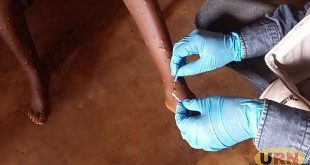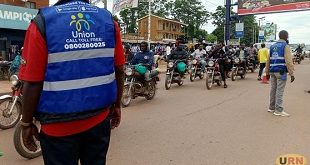
Kampala, Uganda | THE INDEPENDENT | Uganda can leverage its Ebola emergency preparedness activities to help the country meet its other healthcare targets like increased immunization coverage, improved maternal health and HIV prevention, according to a health policy expert. Dr. Solome Okware, the Technical Advisor Policy at the Infectious Diseases Institute in Makerere University, notes that Uganda has heightened its capacity building efforts in coordination, social mobilization, surveillance and case management since the Ebola hemorrhagic fever broke out in the neighboring DR Congo, which can be used to strengthen health systems.
Dr. Okware notes that the speed at which Ebola cases are discovered and handled has become a learning area for many other countries but notes that policy makers in Uganda haven’t thought of applying the same tactics in managing other health issues.
For instance, when another Ebola case from DRC was discovered where a nine-year-old Congolese girl was diagnosed with the disease last week she was quickly isolated at the border before spilling into the community.
Speaking to Uganda Radio Network on Sunday, Dr. Okware said with this outbreak especially at border districts like Kasese, there has been a lot of community based surveillance whereby a suspected case can be followed all through to where it originated.
For her, this important step was missing in West Africa that’s why lots of people died as patients were hidden instead of being linked to health care.
She however, says the challenge with Uganda’s efforts towards Ebola is focusing everything on public facilities, which leaves what the private sector can provide untapped.
In just preparedness, Uganda has a budget of Shillings 64 billion. Experts note that this Ebola model can be expensive to sustain.
Health Minister, Jane Ruth Aceng, says they are advocating for the adopting of this model in handling all the other health issues affecting the country because it has proved to be successful, adding that they want to sell it to donors.
For her, the challenge is that most of the money that comes from donors is conditional with specific terms on how it should be used.
*****
URN
 The Independent Uganda: You get the Truth we Pay the Price
The Independent Uganda: You get the Truth we Pay the Price



